Community / CSR
Tachibana’s Community
Service and CSR
The products Tachibana produces are materials that support cutting-edge technologies around the world. Kumamoto, where our plants are located, is a wonderful place blessed with abundant local resources. As a company deeply rooted in the local community, we believe it is our responsibility to strive for a better future through environmental conservation, human resource development, and community service activities, and we continue to undertake initiatives in these areas.
Environmental
Conservation
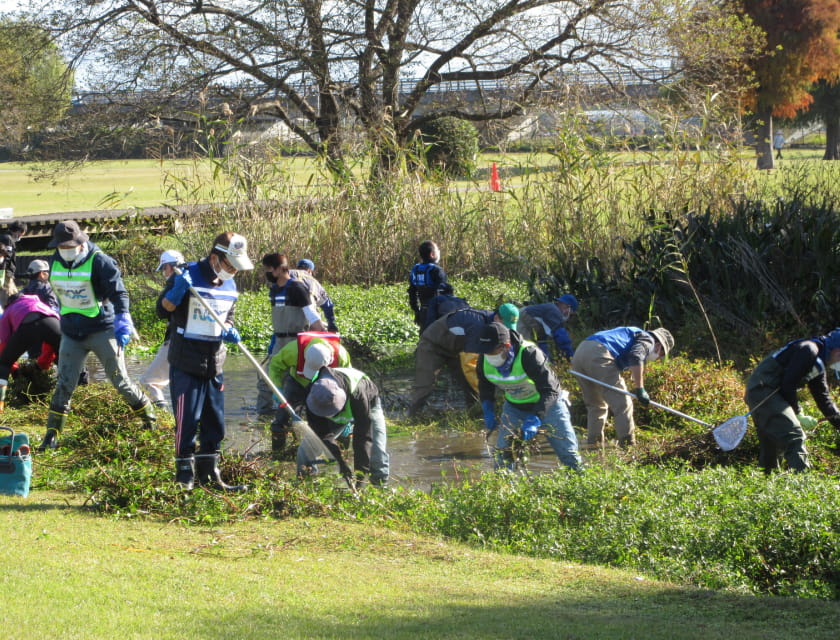
- Member of the Kumamoto Prefecture Environmental Conservation Council
- We are a member of the Kumamoto Prefecture Environmental Conservation Council, which promotes environmental conservation initiatives in Kumamoto Prefecture, a region rich in local resources. This is a local public organization that aims to promote environmental conservation by facilitating the exchange of knowledge and information on environmental conservation among companies with business establishments or sales offices in Kumamoto Prefecture, and by promoting mutual exchange among businesses.
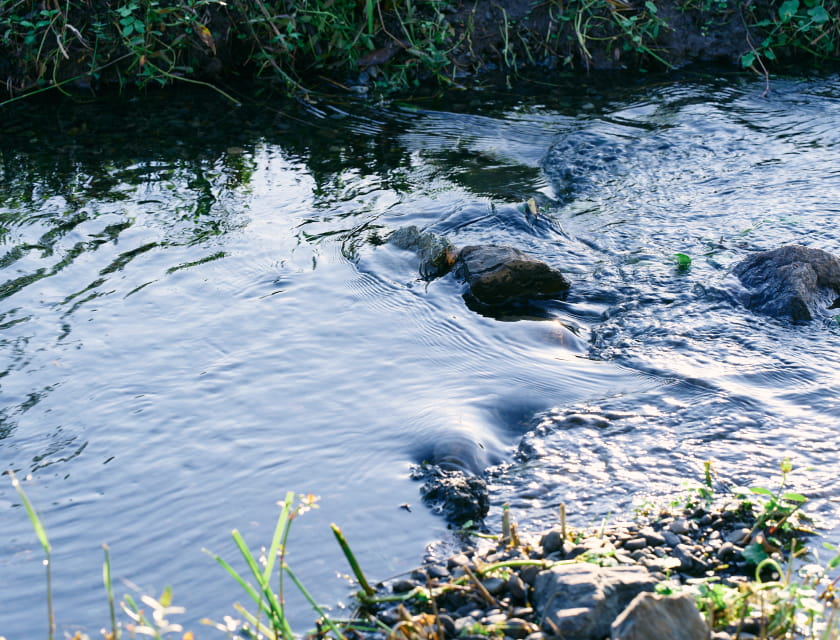
- Thorough treatment of wastewater generated during manufacturing
- The products we manufacture are made using the rich groundwater resources of Kumamoto. In order to continue manufacturing products using local resources, we perform thorough treatment of wastewater generated during the manufacturing process within our factories to ensure that it does not impact the local environment.
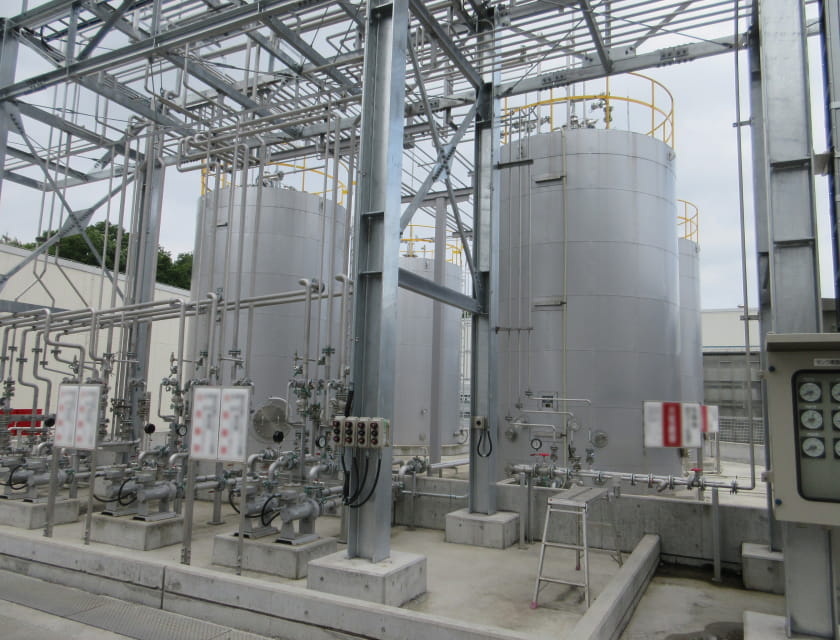
- Recycling of organic solvents, drums, and paper waste
- We conduct recycling of paper waste such as cardboard and newspaper generated at our business sites, as well as organic solvents and drums used in the manufacturing process. Paper waste is collected by a recycling company, contributing to the effective use of resources. Used organic solvents are collected, refined by our partner companies, and reused as recycled solvents. Meanwhile, used drums are reused as return cans after cleaning and shaping.
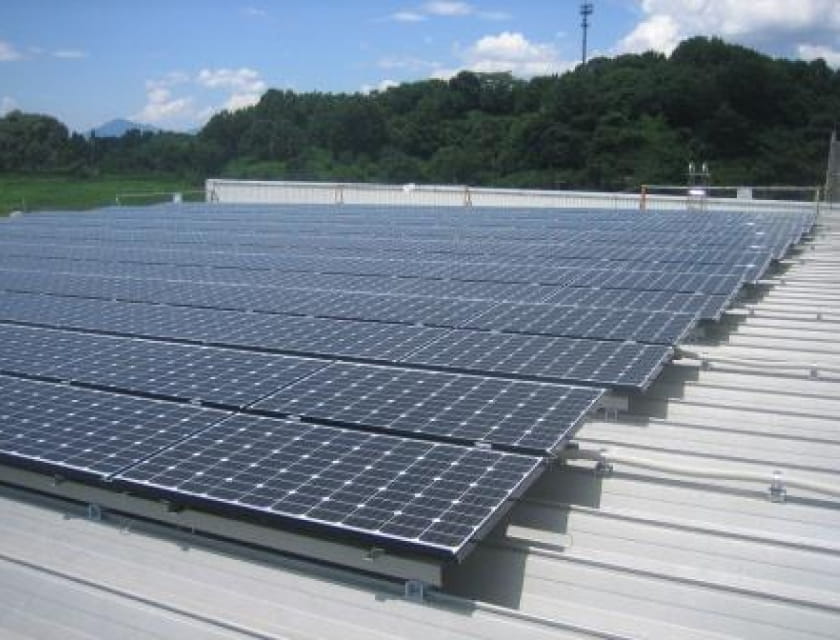
- Installation of solar panels
- Solar panels have been installed on the roof of our plants. We aim to generate approximately 50,000 kilowatts of electricity per year in order to achieve carbon-neutral plants. The electricity generated by the solar panels is used primarily to power warehouses.
Contribution to
the Community
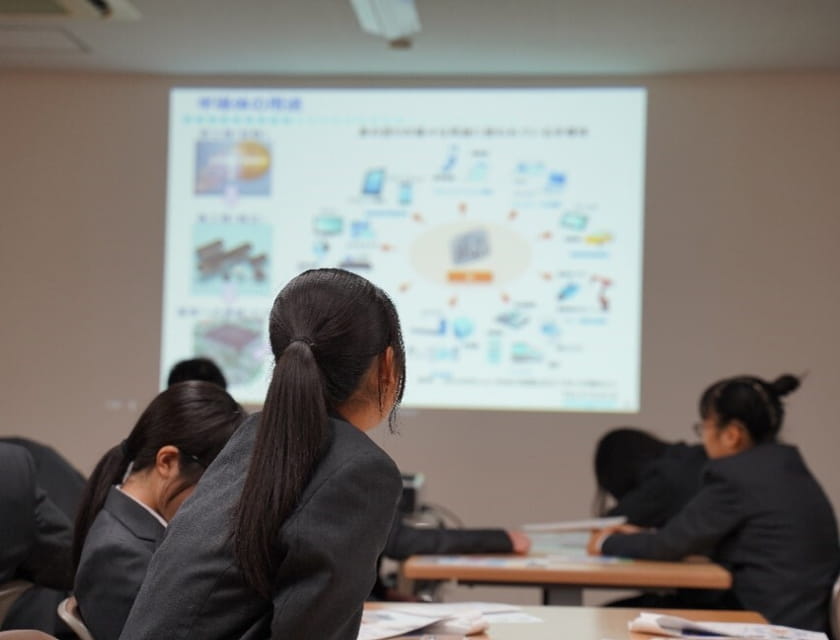
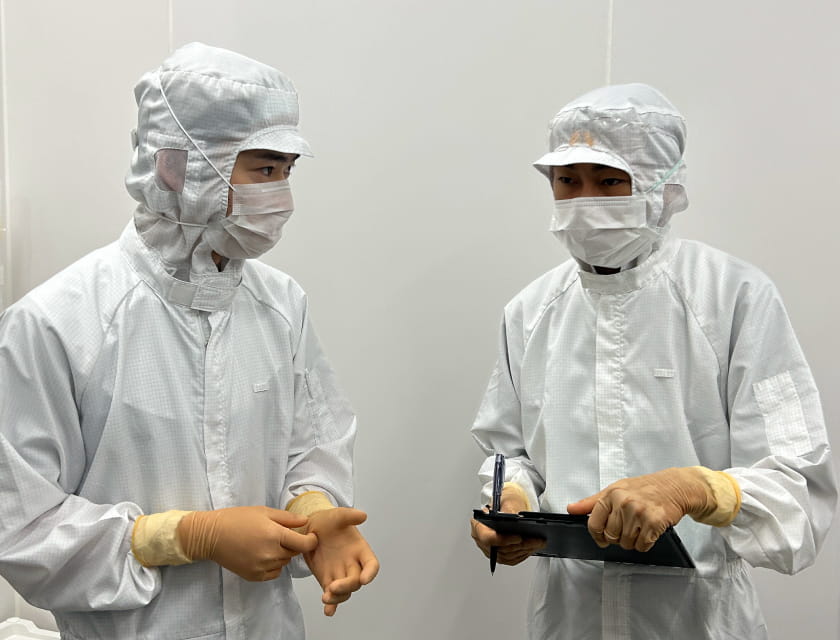
- Industrial education
- In Kumamoto Prefecture, which is home to many companies involved in semiconductor manufacturing, there are many initiatives to promote industrial education for elementary, junior high, and high school students, as well as university students. In support of these efforts, Tachibana actively offers factory tours, internships, and career support. We offer a program that not only provides an understanding of the processes involved in our operations and the work and equipment used in our factories, but also includes opportunities to interact with our employees and participate in roundtable discussions, which can lead to career advice. Our staff conducts interviews with school officials and proposes customized solutions that can be freely configured to meet their needs.
The “Nice Try” workplace experience program for junior high school students offers a variety of industrial education opportunities, including hands-on work experience at cutting-edge facilities, social studies education about local companies, and career support for future career planning.
・Work experience, Nice Try
・Factory tours
・Internships
・Career support, etc.
Disaster
Countermeasures
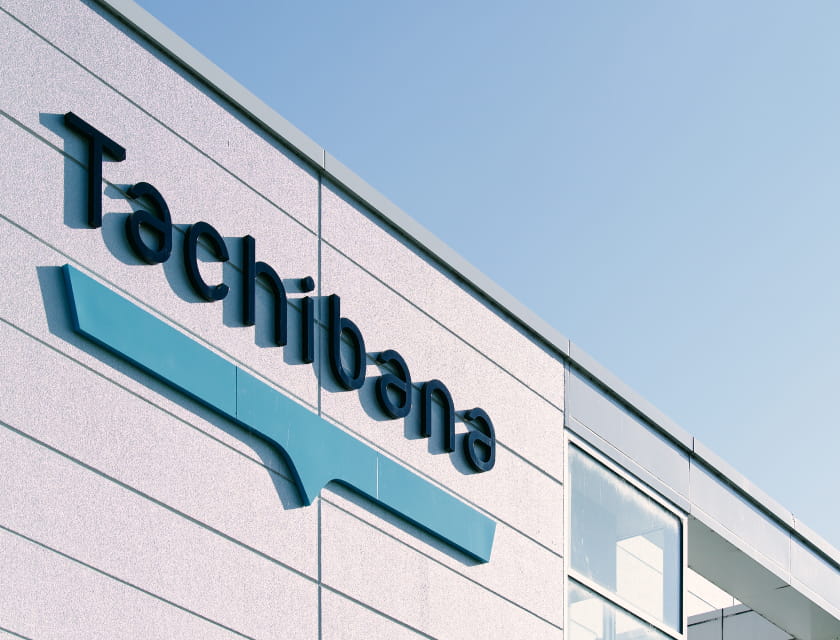
- Development of a business continuity plan (BCP)
- As a part of the supply chain responsible for some areas of material manufacturing, we have developed a business continuity plan (BCP) to ensure the continuity of manufacturing and storage operations in the event of emergencies such as natural disasters.
-
Energy
We have a system in place to respond to power outages in emergencies, including the use of green energy generated by solar power and the installation of switching plates to avoid energy shortages.
-
Storage and logistics
By locating warehouses close to our business sites, we are able to continue manufacturing products even when logistics are disrupted.
-
Plant location
Tachibana’s plants are located in Jonan, Minami-ku, Kumamoto, almost the very center of Kyushu, about 12 km from the nearest coast and at an elevation of about 33 m above sea level. According to hazard maps, this area has a low risk of flooding and landslides.
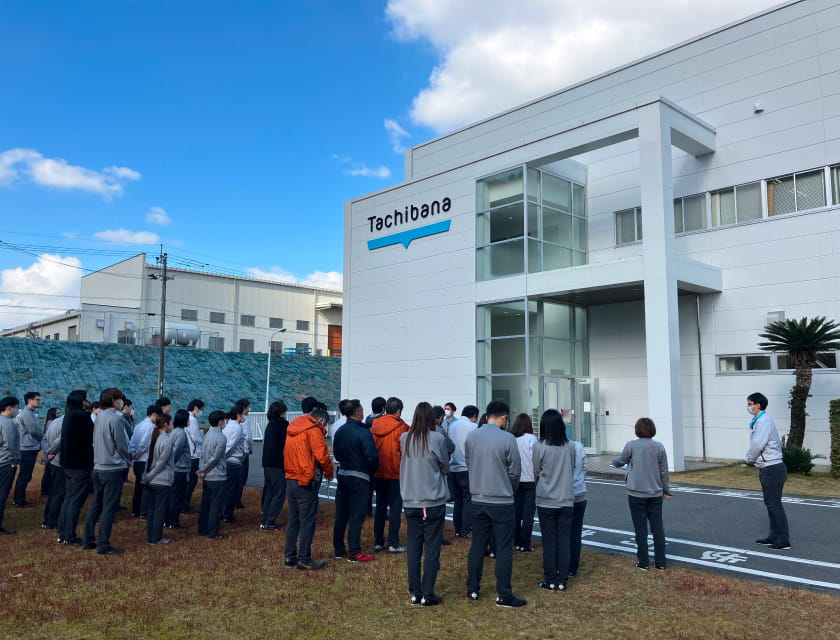
- Conducting regular disaster drills and stockpiling supplies
- Tachibana conducts disaster drills based on scenarios that simulate unexpected situations. We store food, water, and emergency supplies for our employees so that we can continue factory operations in the event of an emergency.

